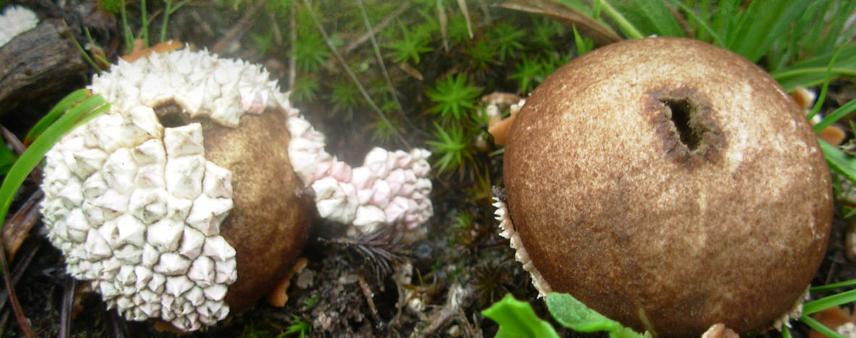Social media video featuring the project.
Proyecto de Conservacion Fungica en Argentina (V1.0)
7 Feb 2007 Quebrada del Condorito National Park, Argentina, Central and Latin America Fungi
This pioneer project on conservation and restoration of fungal community will assess Puffball fungal diversity, species ecological niches, effects of forest conservation on diversity and inoculums development, involving educational and extension materials and activities.

Conservation and restoration of fungal community diversity and processes are important due to their ecological role, but usually this unseen world of decayers is not taken into consideration to the point that we believe the present proposal is the first Fungal Conservation project in Southern South America. Polylepis woodlands in the high Córdoba Mountains (Argentina) are very important because they hold many endemic species of plants, birds, mammals, reptiles and also fungi. Several species of wood rooting fungi were recently described from these forests. However other functional groups of fungi, as Puffball fungi, are not studied yet, their diversity is ignored, as also is the effect of the forest conservation on it.
We hope to contribute to conservation and restoration of Puffball fungal diversity in Polylepis forests of Argentina assessing species diversity, their ecologicl niches and inoculums development, involving educational and extension materials and activities, and scientific publications.
Species diversity: 70 plots of 30 x 30m will be sampled during February-July 2007 (48 plots in forests at different development stages, 16 in surrounding grasslands and badlands derived from forests and 6 in different age reforested/restored areas).
Species ecological niches: Determining the ecological niche we will have information to know how to conserve the species and how to reintroduce and restore the fungal community in deteriorated, fragmented and reforested areas.
Inoculums development for deteriorated/reforested areas: Species that occurs only in mature forests will be isolated to explore the possibility to be inoculated when they are not present in deteriorated /restored areas.
Education, extension and scientific publications are indispensable parts for the success of a Conservation project: Thus, in this way the present proposal will establish a work line on Fungal Conservation with student training. After this first project involved students will be able:
(a) to continue the present proposal, assessing the Puffball fungal diversity changes;
(b) to start and develop by their own new fungal conservation projects in Argentina and in the Andean countries, involving new functional and/or taxonomical fungal groups;
(c) to train park rangers and conservationists working in the areas about fungal processes and diversity conservation;
(d) to do further studies on isolation and inoculation of leaf-litter with local species.
Results will be published in scientific journals and will be the base for educational and extension material development (printed-digital-web).
Social media video featuring the project.
Proyecto de Conservacion Fungica en Argentina (V1.0)